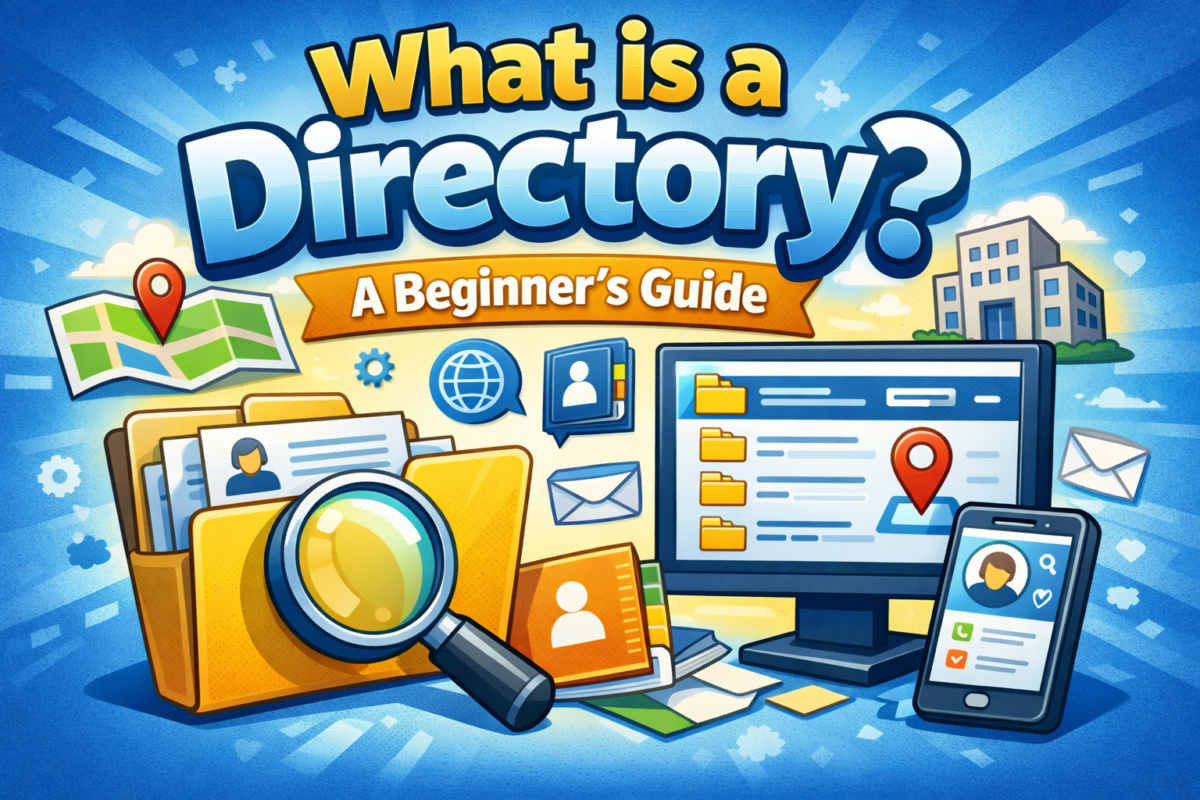You’ve probably come across the term directory online or in computer systems, but it can mean slightly different things depending on the context. Let’s break it down in simple terms.
What is a Directory?
At its core, a directory is simply a way of organizing and listing information. Think of it like a digital or physical catalog that helps you find what you’re looking for.
Directories in Computing
In the world of computers, a directory is another word for a folder. It’s a place on your device where files are stored and organized.
Example: A folder on your computer named “Photos” is a directory.
Inside, you might have sub-directories like “Vacation 2023” or “Family.”This structure helps keep files organized and easy to find.
Directories on the Web
On the internet, a directory is a website or service that lists other websites, businesses, or resources. It’s like a digital phone book.
Examples:
Business directories like Yelp or Yellow Pages list companies by category.Web directories like DMOZ (historically) organized websites by topic.Local directories often help people find nearby services, restaurants, or professionals.
Why Directories Matter In Computing:
Directories help users and systems stay organized, making it easier to manage files and data.
On the Web: Directories make information accessible, connecting people with businesses, services, or resources.
Examples of Directories You Already Use
The “Documents” or “Downloads” folders on your computer.Online business listings like Google Business Profile.Niche directories, such as job boards or industry-specific listings.
In short: A directory is a structured way to organize and display information. In computers, it’s a folder for files. On the web, it’s a listing of websites, businesses, or resources. Either way, directories exist to make finding information easier.



